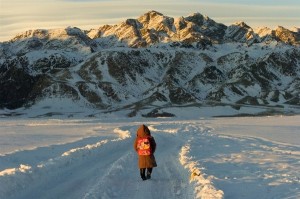东亚及太平洋地区气候变化严重冲击儿童生活 儿童表示已感受到气候变化的威力
2011-11-14

曼谷/香港,2011年11月14日——根据联合国儿童基金会(UNICEF)发表的《气候变化与自然灾害对东亚及太平洋地区儿童的影响》(Children’s Vulnerabilities to Climate Change and Disaster Impacts in East Asia and the Pacific)报告,气候变化为人类的生活造成众多负面影响,首当其冲的就是儿童。在东亚及太平洋地区数以百万计的儿童本来已缺乏清洁食水饮用及适当的衞生设施,时刻面对着粮食危机及疾病的威胁,而气候变化则会令到这些问题进一步恶化。
全球儿童致命的多个主要元兇,均显示与气候变化有莫大关连。研究证实,气温上升是会导致营养不良、霍乱、肠道疾病、登革热及疟疾等蚊媒传染病风险增加的,由于儿童的免疫系统未发展成熟,因此,在一般情况下,儿童患上这些可致命疾病的风险较成年人为高,甚至会较容易因出现并发症而死亡。
这份报告由UNICEF委託专责小组,在印尼、基里巴斯、蒙古、菲律宾和瓦努阿图5个地区进行研究。研究收集了当地儿童的意见及其他相关调查数据,总结出气候变化的趋势及对东亚及太平洋地区儿童所带来的潜在影响。是次研究並获得与国际科学界和健康界合作多年、曾参与出版《刺针(The Lancet)》 及《新科学家(New Scientist)》等逾2,000份期刊的Reed Elsevier 集团支持。
「报告提醒我们,气候变化与儿童所面对的种种挑战有着密切关係。」UNICEF东亚及太平洋地区主任Anupama Rao Singh女士续指,「报告亦让我们得悉儿童面对气候变化的切身经歷,及气候变化对儿童的健康、教育和发展所带来的独有威胁。」
虽然报告显示气候变化的影响存在区域性的差异,但亦指出各地的儿童都正在一起承受气候变化对环境造成的恶果。
 |
 |
 |
 |
是次研究的地区,每4名儿童当中,就有1名儿童因营养不足而阻碍正常发育,而水灾、龙捲风和干旱等自然灾害将进一步打击儿童的成长及发展。报告显示,天灾频繁等对农业收成带来长远的负面影响,而农作物失收引致粮食价格上升,便间接增加儿童营养不良的发病率。
农业收成取决于气温、降雨、水的盐度等受气候影响的因素。在亚太地区,农业生产活动佔区内经济收入逾50%,同时在区内大部份国家国民生产总值的重要支柱。

印度、蒙古和太平洋地区的儿童分別透露,气候变化影响了家中生计,父母因而要求子女辍学,外出收集食水和燃料来帮补生活。
Rao Singh女士坦言:「鼓励儿童就提升对气候变化的应对能力,及减低天灾所造成的祸害出谋献策,是成功对抗气候变化的关键。儿童对生态环境的独特见解,在帮助社区化解气候变化带来的危机担当重要的角色。」
有证据显示,教导儿童认识气候变化,並鼓励他们参与相关活动,能让儿童学懂如何在气候变化中保护自己。並可透过儿童将有关讯息在社区中传递开去,从而让更多人懂到就气候变化作好准备及自我防卫。
「气候变化确确实实影响着儿童的生活,更关乎到他们的未来的福祉。今天能够订下正确的决策,将可成就他日稳健的基础。」Rao Singh女士唿吁,「因此现在正是采取适当措施的时候,我们要积极回应气候变化带来的挑战,並确保冲着儿童而来的危机得到大家关注。我深信,只要我们团结一致,将可更有效地应对气候变化的挑战,为儿童建设一个更好的世界。」









